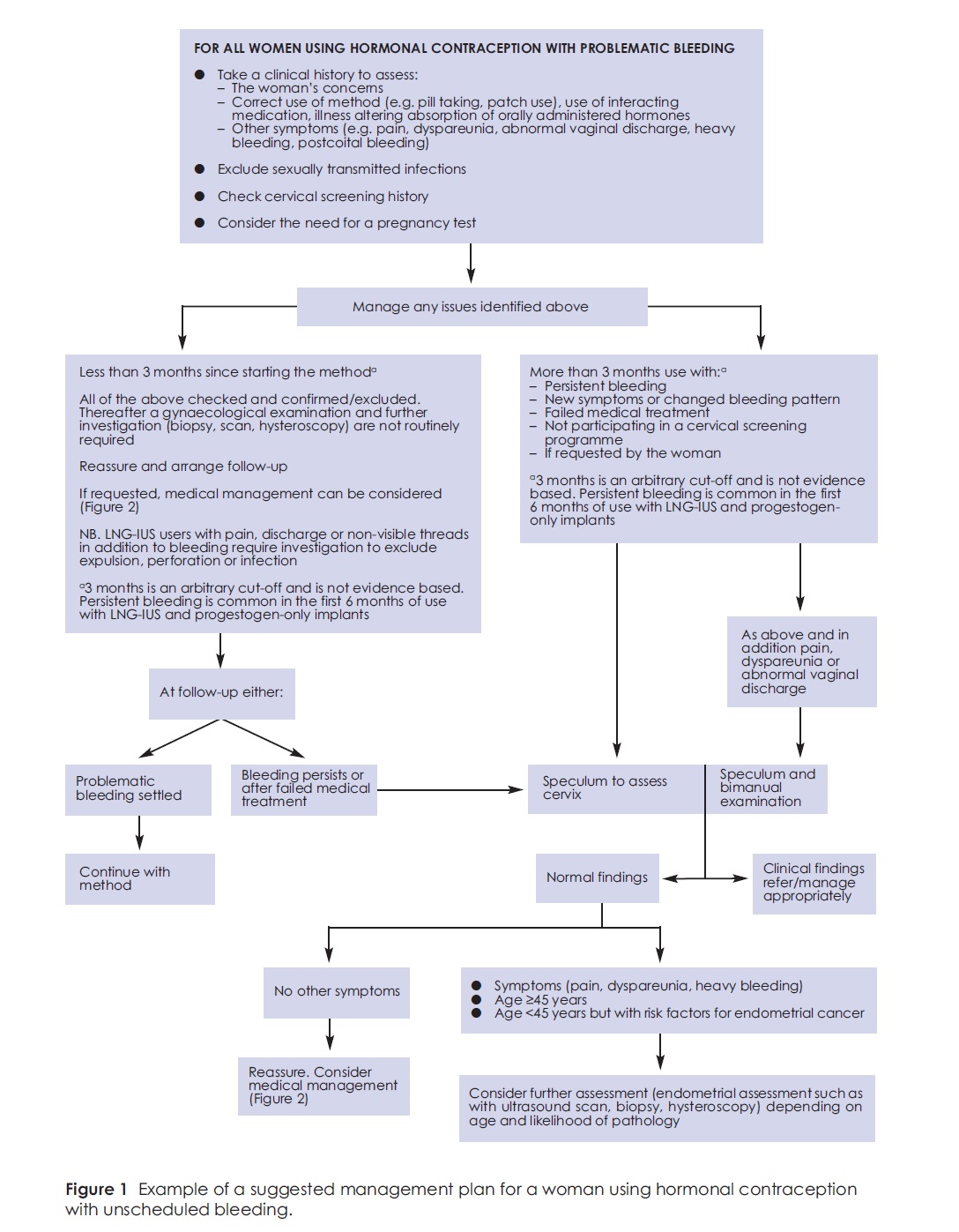management of unscheduled bleeding whilst on hormonal contraception
Last reviewed 01/2018

Unscheduled Bleeding on COC
- it is not generally recommended that a combined oral contraceptive pill is changed within the first 3 months of use as bleeding disturbances often settle in this time
- for women using a combined oral contraceptive pill the lowest dose of ethinylestradiol (EE) to provide good cycle control should be used. However, the dose of EE can be increased to a maximum of 35 µg to provide good cycle control.
Unscheduled Bleeding on POP
- bleeding is common in the initial months of progestogen-only method use and may settle without treatment. If treatment may encourage women to continue with the method it may be considered.
- there is no evidence that changing the type and dose of progestogen-only pills will improve bleeding but this may help some individuals
Unscheduled Bleeding whilst using a progestogen-only injectable, mplant or IUS
- for women with unscheduled bleeding using a progestogen-only injectable, implant or IUS who wish to continue with the method and are medically eligible, a COC may be used for up to 3 months (this can be in the usual cyclic manner or continuously without a pill-free interval).
- for women using a progestogen-only injectable contraceptive with unscheduled bleeding, mefenamic acid 500 mg twice daily (or as licensed up to three times daily) for 5 days can reduce the length of a bleeding episode but has little effect on bleeding in the longer term.
- longer-term use of COC has not been studied in relation to the progestogen-only injectable, implant or IUS methods. If bleeding recurs following 3 months use of COC, longer-term use is a matter of clinical judgement
Reference:
- 1) FSRH (2015). Problematic bleeding with hormonal contraception.